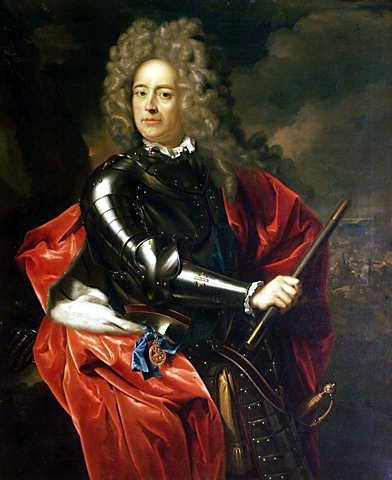#james de malplaquet
Text
youtube
Bonobo must have felt weird during the noughts, he was an outsider. I mean, his albums were close to what the times were, yet they also differed immensely. Moreover, he even tried to perform his pieces on his tours. I can hear you're already rolling your eyes over the statement, yet Live Sessions should prove you wrong about the electronic musicians of his ilk. You see, he actually gathered a band to perform his songs, so he did something few of his peers even attempted, i.e. he checked how his songs function outside the confines of electronica. He continues to do that, showing us a musician who's willing to challenge the stereotypes of his music. That might be one of his biggest successes, i.e. he showed this type of compositions can be more than just a certain set.
#Youtube#bonobo#live sessions#noctuary#simon green#simon james#jack baker#james de malplaquet#simon little#ben cooke#00's music#electronic music
0 notes
Photo

General John Churchill, 1st Duke of Marlborough, 1st Prince of Mindelheim, 1st Count of Nellenburg, Prince of the Holy Roman Empire, KG, PC (26 May 1650 – 16 June 1722 O.S.[a]) was an English soldier and statesman whose career spanned the reigns of five monarchs. From a gentry family, he served first as a page at the court of the House of Stuart under James, Duke of York, through the 1670s and early 1680s, earning military and political advancement through his courage and diplomatic skill.
Churchill's role in defeating the Monmouth Rebellion in 1685 helped secure James on the throne, but he was a key player in the military conspiracy that led to James being deposed during the Glorious Revolution. Rewarded by William III with the title Earl of Marlborough, persistent charges of Jacobitism led to his fall from office and temporary imprisonment in the Tower of London. William recognised his abilities by appointing him as his deputy in Southern Netherlands (modern-day Belgium) before the War of the Spanish Succession in 1701, but not until the accession of Queen Anne in 1702 did he secure his fame and fortune.
Marriage to Sarah Jennings and her relationship with Anne ensured Marlborough's rise, first to the captain-generalcy of British forces, then to a dukedom. As de facto leader of Allied forces in the Low Countries, his victories at Blenheim (1704), Ramillies (1706), Oudenarde (1708), and Malplaquet (1709) ensured his place in history as one of Europe's great generals.
His wife's stormy relationship with the Queen, and her subsequent dismissal from court, was central to his own fall. Incurring Anne's disfavour, and caught between Tory and Whig factions, Marlborough was forced from office and went into self-imposed exile. He returned to favour with the accession of George I to the British throne in 1714, but a stroke in 1716 ended his active career.
Marlborough's leadership of the Allied armies fighting Louis XIV from 1701 to 1710 consolidated Britain's emergence as a front-rank power, while his ability to maintain unity in the fractious coalition demonstrated his diplomatic skills. He is often remembered by military historians as much for his organisational and logistic skills as his tactical abilities. However, he was also instrumental in moving away from the siege warfare that dominated the Nine Years' War, arguing one battle was worth ten sieges.
https://en.wikipedia.org/wiki/John_Churchill,_1st_Duke_of_Marlborough
0 notes